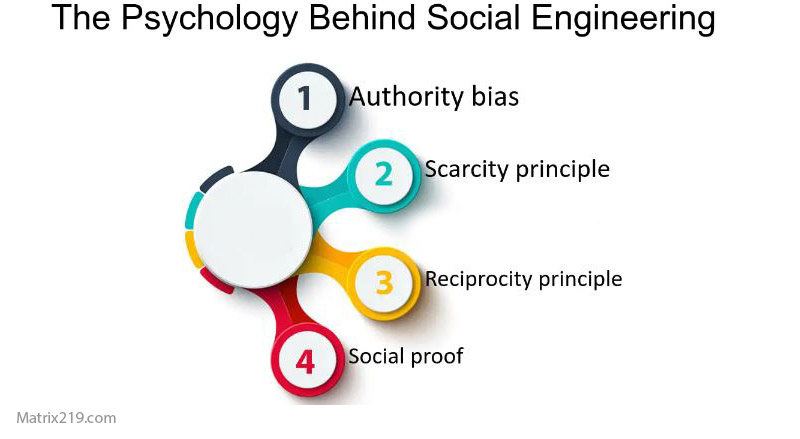Social engineering, from a sociological perspective, refers to the deliberate use of structured methods to influence collective behavior in pursuit of specific social outcomes. In sociology, it is treated as an analytical and applied framework for understanding how institutions, public policies, and cultural systems shape human behavior over time, rather than as an act of deception.
This distinction becomes especially important when separating academic social planning from the manipulative practices discussed in cybersecurity. While sociological social engineering focuses on stability and reform, malicious influence tactics are examined in depth within Social Engineering: The Complete Guide to Human-Based Cyber Attacks, where the objective is exploitation rather than social balance.
Defining Social Engineering in Sociology
In sociological theory, social engineering does not rely on coercion or trickery. Instead, it involves designing interventions that guide societies toward cohesion, adaptation, or transformation. These interventions are commonly implemented through education systems, legislation, media narratives, and institutional frameworks.
This academic interpretation contrasts sharply with the weaponized use of influence in digital environments, such as those described in How Attackers Use Chatbots for Social Engineering, where psychological triggers are intentionally abused to manipulate individuals at scale.
Historical Origins and Theoretical Background
The roots of social engineering can be traced back to early sociological and political thought during periods of industrialization and urban expansion. Scholars and policymakers sought systematic approaches to manage population growth, economic inequality, and social disorder through organized institutional control.
These early frameworks later evolved into governance models embedded within welfare systems and regulatory structures. Over time, debates emerged around ethical boundaries, authority, and individual autonomy—issues that continue to influence both traditional social policy and modern digital societies, including emerging discussions around The Psychology Behind Social Engineering Attacks.

psychology behind social engineering attacks
Core Objectives of Social Engineering in Society
One of the main objectives of social engineering is structured social change. This includes addressing systemic issues such as poverty, crime, and discrimination through coordinated policies rather than fragmented or reactionary measures.
Another key objective involves managing social relationships by fostering trust and cooperation between diverse social groups. Understanding how trust operates at a societal level is also critical for recognizing how it can be abused, a topic explored from a defensive angle in Protection Against Social Engineering: A Comprehensive Guide for Individuals and Organizations.
Applications Across Social Systems
Education represents one of the most influential tools of sociological social engineering. Curriculum design, civic education, and behavioral frameworks are intentionally structured to reinforce social responsibility, inclusion, and long-term collective values.
Media plays a similarly powerful role by shaping public perception and guiding societal priorities. Public awareness campaigns related to health, safety, and environmental responsibility demonstrate how communication can normalize behavior without direct enforcement, a mechanism closely related to principles discussed in Phishing as a Social Engineering Technique.
Urban planning offers a less visible but highly effective application. The design of cities, public spaces, and transportation systems influences social interaction, conflict reduction, and overall quality of life, showing how physical environments can function as behavioral frameworks.
Social Engineering at the Policy Level
Social engineering becomes most visible within public policy. Governments implement welfare programs, employment initiatives, and social protection systems not only to provide support but also to encourage sustainable participation in society.
At this level, ethical considerations become critical. Poorly designed interventions may generate resistance or dependency, reinforcing the need for transparency and accountability in large-scale social planning. These concerns align closely with broader discussions found in Account Security and Recovery – How to Recover Hacked Accounts Legally, where institutional responsibility plays a key role in protecting individuals.
Ethical and Practical Challenges
A long-standing debate in sociology questions whether social engineering represents ethical guidance or indirect coercion. Critics argue that even well-intentioned policies may impose dominant values that conflict with cultural or individual beliefs.
Technological advancement further complicates these challenges. Data-driven behavioral analysis increases the precision of social interventions but raises serious concerns around privacy, surveillance, and consent—issues increasingly discussed alongside digital security and privacy frameworks such as Digital Privacy and Online Tracking: How You’re Tracked Online and How to Protect Yourself.
Social Engineering and Community Development
When applied responsibly, social engineering can strengthen social solidarity by promoting cooperation and reducing systemic tensions. Targeted initiatives in healthcare, education, and economic opportunity often lead to measurable improvements in community resilience.
Justice-focused programs also contribute to conflict reduction by addressing root causes rather than surface symptoms, aligning with sociological principles of sustainable and inclusive development.
Conclusion
Social engineering in sociology functions as a strategic framework for understanding and guiding collective behavior within clearly defined ethical boundaries. While it shares conceptual tools with manipulative practices found in cybersecurity, its intent and execution are fundamentally different. When grounded in research, transparency, and respect for individual autonomy, sociological social engineering remains a powerful instrument for building stable and progressive societies.
For broader academic context on behavioral influence within social systems, see Encyclopaedia Britannica – Social Engineering.





